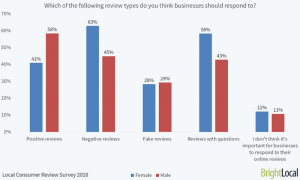— January 10, 2018

geralt / Pixabay
We all like to think we are doing an unbelievable job when it comes to performance management, heck some might pat themselves on the back just for making it through all the annual reviews they have to do. Unfortunately, research is showing the average performance review is failing to do very thing we hope it accomplishes. An astonishing 77% of HR executives believe performance reviews aren’t accurate representations of employee performance. And only 14% of employees strongly agree their reviews inspire improvement. And that’s just the review part of performance management.
Have you considered how a proper performance management affects profits? According to Decision-Wise.com, the cost for the annual performance review process is about $ 120,000 just in the value of time spent. Of course, that number varies among organizations and teams, but overall, it’s hard to ignore how costly reviews can be for businesses. Especially when both employees and managers say they aren’t as effective as they could be. So what makes for great performance management and how does that translate to profitability?
Managing Goals Means Better Motivation
As a manager you already know that your employees like to work towards goals. It gives purpose, steers actionable tasks and can provide a clear path to accomplishments. Because 78% of employees said being recognized provides them motivation, clear cut wins can be great for managers too. Unfortunately, it’s common for busy teams to adopt the set it and forget it mentality or overlook goal setting altogether.
Performance management is reliant on defining success. Establishing goals is essentially explaining exactly what the organization needs in order to reach peak potential. Employees rely on that transparency and guidance to steer their own career trajectory. Even better, it can help push them to self assess their performance. Not all employees will be so intrinsically motivated, but when the path is set, workers stand a better chance of feeling obligated to meet expectation. Even better, managers can more easily see who is and isn’t meeting those goals, spurring better performance conversations or employment decisions.
Those pieces combined lead to more engaged employees. Not only is your organization consistently moving toward specific objectives, workers can see where their own future could lie. Companies with engaged employees have 8.6% higher profit margins than companies with a larger share of bored employees. Additionally, 78% employees would stay with their current employer if they knew their career path within the organization, which means fewer recruiting costs, committed employees and all around better employer branding.
Grab Your Hard Hat, Constructive Brings Improvement
No one likes to provide constructive feedback. It’s always a little awkward and it can be hard to convey that criticism is granted to the most talented, capable people. Luckily, today’s employees are aware of just how important constructive criticism is and how receiving it means a chance to do better. One study found that 57% of employees prefer corrective feedback to praise, and a full 72% believe their performance would improve if their manager administered more corrective feedback.
The effect of constructive feedback on your bottom line is apparent. When some part of performance is missing, constructive feedback helps the employee or manager get back on track to better performance. That means business is being conducted more efficiently. The challenge is that the criticism has to be given tactfully. It should be rooted in helping the employee to perform better so that the company is improved and their career sees progress. If this is not the intent, the employee will quickly lose motivation and trust in their own work and team. When providing constructive feedback, be sure to point out successes and help the employee see where their skills are still valuable. Work with the individual to create a performance plan and establish yourself as a resource. As a manager, make it abundantly clear that you are also open to critical feedback if the situation warrants. Feedback loops like this build trust and push the potential performance.
Performance Depends On Communication
Performance reviews are not planned attacks. They’re primers and meant to provide goals and steer careers. It is crucial that communication is at the root of performance, whether you use an annual performance review structure or has weekly one-on-ones. In fact, that is why so much research points to continuous feedback as the employee-preferred performance management tool.
Continuous feedback means problems are solved before they become huge ordeals. Employees like the clarity for their own work, but it also ensures the organization’s profitability and performance aren’t suffering for long. According to Fortune.com, 45% of employees say a performance evaluation has helped them get better at their jobs. With a more clear, focused idea your employees can create improved and better work, which means happier clients and happier clients means increased profits.
Though continuous feedback is so useful, it can be an overwhelming process for managers to adopt. It requires more attention to the everyday work challenges and accomplishments of their workers. Additionally, the best feedback systems keep record of all performance management conversations and interactions. That record helps guide compensation, promotions and all other employment decisions.
Whoever said money is time was not wrong. Realizing that your employees are part of your investments will help you see true ROI on performance management tools. Improved employee performance does equal better business performance.
Business & Finance Articles on Business 2 Community
(93)






